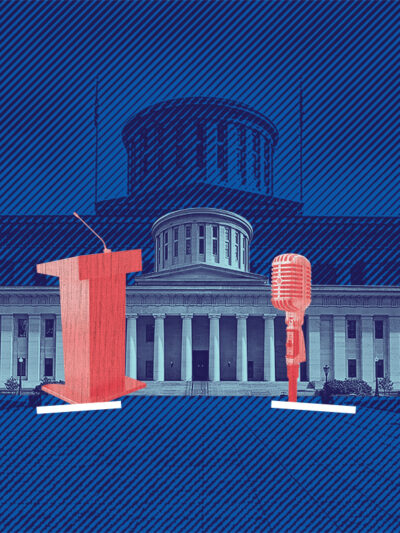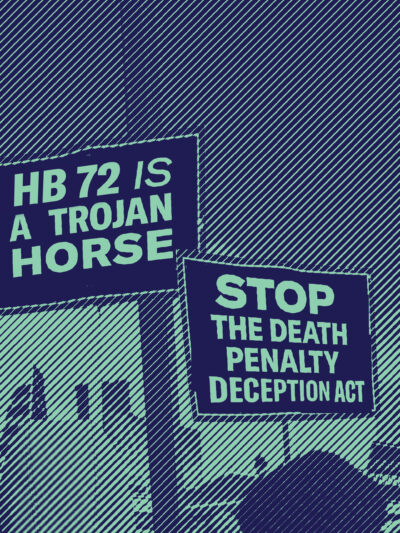- About
- Events
- News
- Our Work
- Issue Areas
- All Issue Areas
- Columbus Safety Collective
- Disability Rights
- First Amendment
- Greater CLE Youth Justice Collective
- Immigrants' Rights
- Legalize and Repair
- LGBTQ Rights
- Mayor's Courts
- Public Records
- Racial Justice
- Repealing the Death Penalty
- Reproductive Freedom
- Statehouse to Prison Pipeline
- Vote Center
- Take Action
- Get Involved
- Know Your Rights
News & Commentary
Feb 24, 2025
House Bill 54 - Opponent Testimony
House Bill 54, better known as the transportation budget bill, includes an anti-voter provision that requires people to provide proof of citizenship when registering to vote, or updating their registration, at the Bureau of Moter Vehicles.
By Collin Marozzi

Feb 20, 2025
The Ohio Legislature's Misleading Approach to Death Penalty Repeal
You may have heard through the proverbial grapevine that a group of legislators is taking an unusual (not to mention unconstitutional!) approach to death penalty repeal legislation this General Assembly.
By Sean McCann

Feb 18, 2025
Senate Bill 56 – Opponent Testimony
Ohio voters overwhelmingly supported Issue 2. In doing so, they endorsed policies regarding adult-use cannabis. SB 56 now proposes to roll back these changes, in whole or in part, in an affront to those same voters.
By Gary Daniels

Feb 11, 2025
Senate Bill 1 - Opponent Testimony
To support SB 1, as is, is an invitation to chaos, confusion, and First Amendment violations on all our campuses. Instead, the ACLU of Ohio urges this committee's rejection of Senate Bill 1.
By Gary Daniels

Feb 10, 2025
Police Identities Hidden Under Victims’ Rights Law: Marsy’s Law and access to police records
A transparent government can be an accountable government.
By Patrick Higgins

Dec 10, 2024
Sub. House Bill 206 – Opponent Testimony
The ACLU of Ohio submits HB 206 grants far too much authority to a single individual, and we are concerned these powers will be abused and unevenly applied. We encourage lawmakers to reject Substitute House Bill 206.
By Gary Daniels

Dec 10, 2024
Senate Bill 37 - Proponent Testimony
The ACLU of Ohio supports Senate Bill 37 because it is a stride in addressing flaws in existing law regarding how our state addresses offenses unrelated to driving that are currently standing between Ohioans and their ability to get to places like work and school.
By Patrick Higgins

Stay Informed
Sign up to be the first to hear about how to take action.
By completing this form, I agree to receive occasional emails per the terms of the ACLU’s privacy statement.
By completing this form, I agree to receive occasional emails per the terms of the ACLU’s privacy statement.
